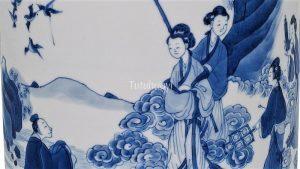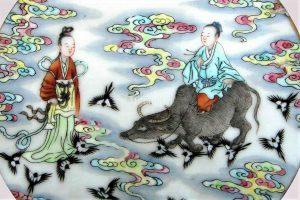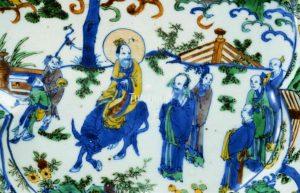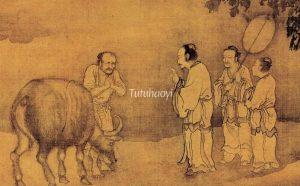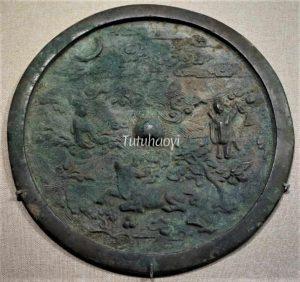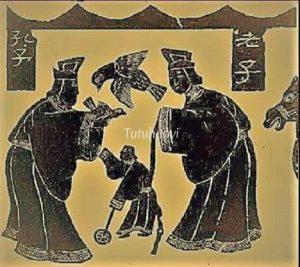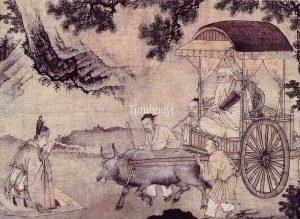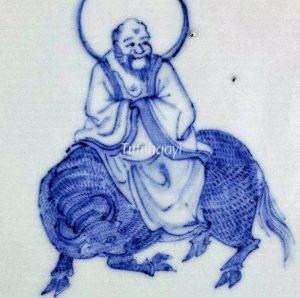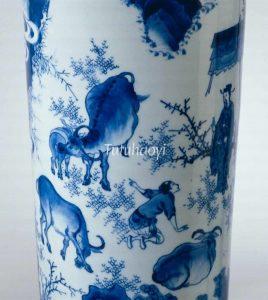Showing Results Containing
The Chinese Valentine’s Day, Qixi Festival (七夕节), is just around the corner. It falls on the seventh day of the seventh month of the traditional Chinese year. Dr Yibin Ni has conducted comprehensive research on this topic and has written an articl...
On the seventh day of the seventh month of the lunar Chinese year, young men and women will celebrate their traditional ‘Valentine’s Day’, Qixi Festival (七夕节). The custom can be traced back to an ancient story.
Have you ever wondered why images of an old scholarly man riding a buffalo are often depicted on Chinese antiques? What is so special about this man who looks highly respected and followed by yet still sitting on a buffalo’s back? We hereby invite...
The story of the statesman Bing Ji (丙吉) inquiring about a panting buffalo in ancient China has been illustrated in various forms in traditional Chinese art. It is meant to praise high-ranking officials who can prioritise their duties for their cou...
The seventh day of the seventh month of the traditional Chinese year is the Chinese ‘Valentine’s Day’, Qixi Festival (七夕节). The custom can be traced back to an ancient story about a weaver girl and a cowherd:
Once upon a time, one of the daughters of the Lord of the Heaven lived on the east side of the Mi...
Ancient literature shows that Laozi (老子, also known as Lao Tzu) served as the Keeper of the Imperial Archives of the Eastern Zhou court (东周, 770-258 BCE). He must have greatly benefited from the perk of the job – the easy access to the best stock of classics written on bamboo slips at the time and became s...
Laozi (Lao Tzu 老子) is a great ancient Chinese thinker, to whom a five-thousand-character book ‘Dao de jing 道德经’, or The Scripture of the Way and Virtue, has been attributed. He is regarded as the founder of philosophical Daoism (Taoism), daojia 道家, because of his profound insights to life and t...
Laozi (Lao Tzu 老子), literally ‘old teacher or master’, is the well-known name for a great ancient Chinese thinker, to whom a five-thousand-character book ‘Dao de jing 道德经’, or The Scripture of the Way and Virtue, has been attributed. He is regarded as the founder of philosophical Daoism (Taoism), da...
When Bing Ji (丙吉 d. 55 BCE) was a chancellor in the Han court, once he encountered the aftermath of a gang fight in the street. Bing Ji passed them without batting an eyelid. Further ahead, a buffalo passed and it looked out of breath. Bing Ji had its owner stopped and inquired about the buffalo’s heavy panting. Bing Ji’...
